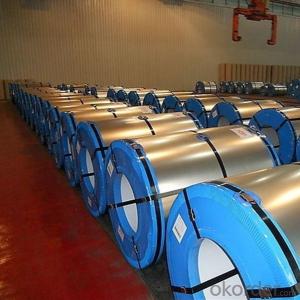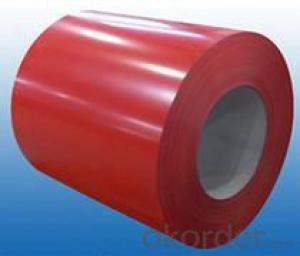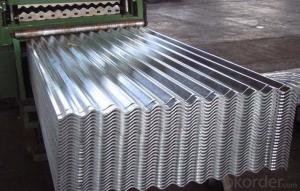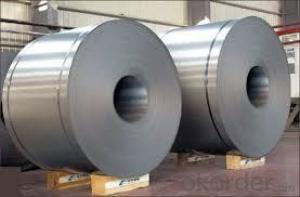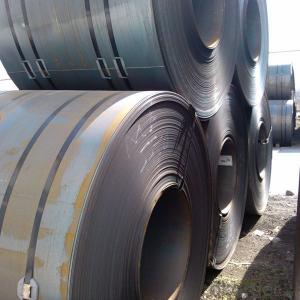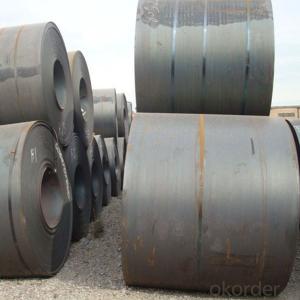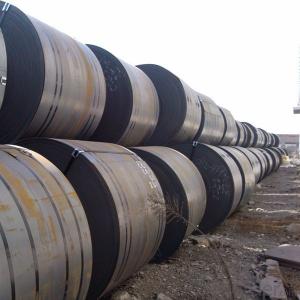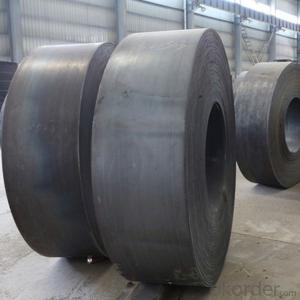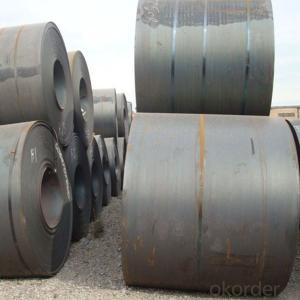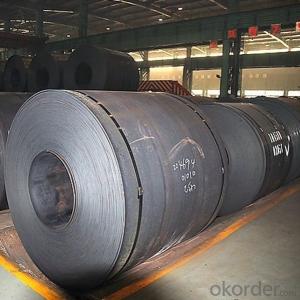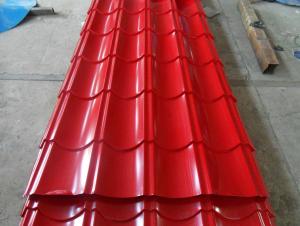Steel Plates SS400,Hot Rolled Steel Coils,Made in China
- Loading Port:
- Tianjin
- Payment Terms:
- TT OR LC
- Min Order Qty:
- 50 m.t.
- Supply Capability:
- 500 m.t./month
OKorder Service Pledge
OKorder Financial Service
You Might Also Like
Specification
DESCRIPTION FOR SS400 CARBON STEEL SHEET
1.Thickness: 1-200mm
2.Width: 100-3000mm
3.Length: 1000-12000mm
4. Applications :mining machinery, environmental protection, engineering
5. Grade:SS400 A 36 Q195.Q235.Q345.SPCC.SPCH
6.Surface : Hot Rolled Cold Rolled Galvanized Steel
TRADE TERMS :FOB, CFR, CIF
FEATURES OF STEEL COILS
(1)Good ductility
(2)Good corrosion resistance
(3)Excellent abrasion resistance and fatigue strength
(4)Good weldability
(5)Oxidation resistant performance
(6)Excellent in high temperature
DETAILED PICTURES FOR STEEL COILS
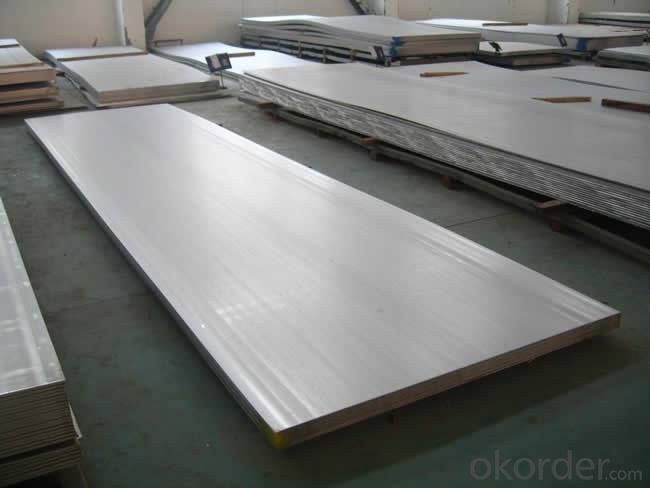
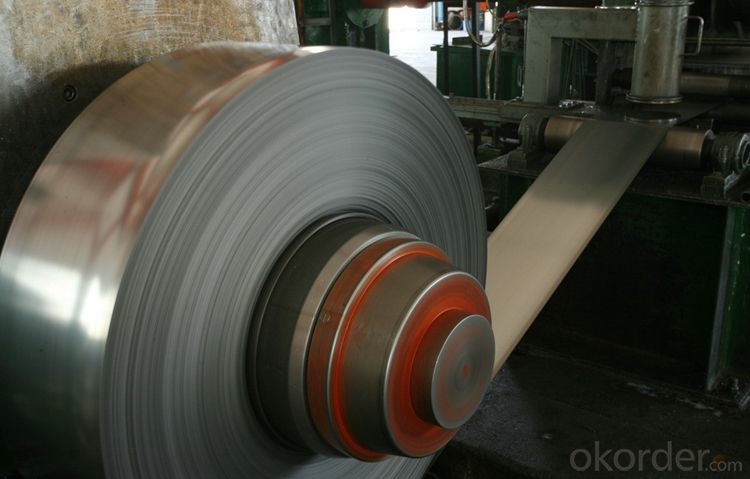
EXPORT MARKET FOR STEEL COILS/SHEETS
Our target market is the international market. Every year we export most of products to countries like India, Pakistan, South Korea, Brazil, Australia, South Africa, Spain, Sri Lanka, Taiwan, Hong Kong, etc.
FAQ
Q: How long is the delivery time?
A: Normally 30-40 days, but mostly according to the specific requirements or the quantity
Q: Could you send me sample?
A: We can supply you with the sample for free, but the delivery charges will be covered by customers.
FAQ
Q: How can I get the samples?
A: If you need some samples to test ,please pay for the transportation freight of samples and our samples are free for you.
Q: How can I get your price list?
A: Please send us your email or fax and order information – Quantity, Specification (steel type, thickness, width, surface finish), then I can send you the price list.
- Q: Are steel sheets available in different hardness levels?
- Yes, steel sheets are available in different hardness levels. The hardness of a steel sheet is determined by factors such as the composition of the steel, the heat treatment it undergoes, and any additional processing or alloying. Steel sheets can range from very soft and malleable to extremely hard and durable. The most commonly used hardness scale for steel sheets is the Rockwell scale, which measures the indentation hardness of the material. By offering different hardness levels, steel sheets can meet a wide range of application requirements, from forming and bending to high-wear applications that require excellent resistance to abrasion.
- Q: What is the tensile strength of steel sheets?
- The tensile strength of steel sheets typically ranges from 370 to 520 megapascals (MPa), depending on the grade and thickness of the steel.
- Q: How do steel sheets handle static electricity?
- Steel sheets are generally excellent conductors of electricity, including static electricity. Due to their high electrical conductivity, steel sheets are capable of quickly dissipating any static charge that may build up on their surfaces. This ability to handle static electricity effectively is primarily attributed to the presence of free electrons within the steel's atomic structure. When a static charge is applied to a steel sheet, the free electrons readily move and redistribute themselves, neutralizing the charge and preventing any buildup or discharge of static electricity. Additionally, steel sheets are often coated with a thin layer of protective material, such as zinc or paint, which further enhances their ability to dissipate static charges. Overall, steel sheets are known for their reliable performance in handling static electricity and are commonly used in various industrial applications where electrostatic discharge can potentially cause damage or safety hazards.
- Q: Do steel sheets require any special storage or handling?
- Yes, steel sheets require special storage and handling to ensure their integrity and avoid any damage. They should be stored in a clean, dry, and well-ventilated area to prevent corrosion. Additionally, they should be stacked in a way that prevents distortion or bending. When handling steel sheets, it is important to use proper lifting equipment and techniques to prevent accidents and maintain the quality of the sheets.
- Q: Is 5mm thick steel plate tapping M8 thread reliable?
- With 5mm steel plate upside M8 thread, with M8 screw, that depends on what you use it to do? Check the strength of the screws at M8 (different grades, different intensities) to see if you are reliable and unreliable.
- Q: How do steel sheets handle weathering?
- Steel sheets are designed to handle weathering quite effectively. They are typically coated with a protective layer, such as zinc or a combination of zinc and aluminum, which creates a barrier against moisture and other environmental elements. This coating, known as galvanization, prevents the steel from corroding or rusting when exposed to rain, snow, and other forms of precipitation. In addition to the protective coating, steel sheets are also treated with various chemical processes to enhance their resistance to weathering. These processes may include the application of primers, paints, or sealants that further shield the steel from moisture, UV radiation, and extreme temperature fluctuations. Moreover, the composition of steel itself contributes to its ability to withstand weathering. Steel is an alloy comprised primarily of iron, carbon, and other elements, which gives it inherent strength and durability. This structural integrity allows steel sheets to resist deformation, cracking, or warping that may occur due to weather-related stresses. However, it is important to note that over time, even the most well-protected steel sheets may experience some degree of weathering. Exposure to harsh environmental conditions can gradually degrade the protective coating, leading to the formation of small areas of rust or corrosion. Regular maintenance, such as cleaning, inspecting, and reapplying protective coatings, can help prolong the lifespan of steel sheets and maintain their resistance to weathering.
- Q: How do steel sheets perform in terms of energy efficiency?
- Steel sheets have excellent energy efficiency performance due to their high thermal conductivity, which allows for efficient heat transfer. Additionally, steel sheets are often used in construction for their insulating properties, reducing energy consumption for heating and cooling.
- Q: What are the different packaging options available for steel sheets?
- There are various packaging options available for steel sheets, depending on their size, shape, and intended use. Some common packaging options include: 1. Wooden crates: Steel sheets are often packed in wooden crates, which provide sturdy protection and prevent damage during transportation. The sheets are secured inside the crate using straps or bands to ensure they remain in place. 2. Steel frames: Another option is to package steel sheets in steel frames. This method provides extra protection and stability, especially for larger or heavier steel sheets. The frame is designed to securely hold the sheets in place and prevent any shifting during transit. 3. Coil packaging: Steel sheets that are in the form of coils are often packaged differently. They can be wrapped in plastic or paper to protect them from moisture, dust, and other environmental factors. The coils are then typically placed on pallets to facilitate easy handling and transportation. 4. Bundles: Steel sheets can also be bundled together using steel straps or bands. This packaging method is commonly used for smaller sheets or when multiple sheets need to be packaged together. The bundles can be further secured with shrink wrap or plastic covers to ensure they stay intact during shipping. 5. Custom packaging: Depending on specific requirements or customer preferences, steel sheets can be packaged in custom-designed packaging. This can include using foam padding or inserts to protect delicate or sensitive surfaces, or using specialized containers for specific applications such as food-grade steel sheets. Overall, the packaging options for steel sheets are diverse and can be tailored to meet the needs of different industries and customers. The choice of packaging will depend on factors such as sheet size, weight, level of protection required, and transportation method.
- Q: How are steel sheets measured and sized?
- Steel sheets are measured and sized using various parameters such as thickness, width, and length. The thickness is typically measured in gauge or millimeters, while the width and length are measured in inches or feet. Additionally, steel sheets can be cut and customized to specific dimensions as per the requirements of the project or application.
- Q: Is color steel plate the same as color steel tile?
- Tile color steel tile is used for color coated steel plate, pressure plate and the roller of cold bending into various wave types, it is suitable for industrial and civil buildings, warehouses, special buildings, large-span steel structure house roof, walls and wall decoration, has the characteristics of light weight, high strength, color rich, convenient construction, affluence earthquake, fire, rain, long service life, maintenance free, have been widely applied.
Send your message to us
Steel Plates SS400,Hot Rolled Steel Coils,Made in China
- Loading Port:
- Tianjin
- Payment Terms:
- TT OR LC
- Min Order Qty:
- 50 m.t.
- Supply Capability:
- 500 m.t./month
OKorder Service Pledge
OKorder Financial Service
Similar products
Hot products
Hot Searches
Related keywords
